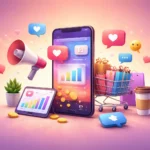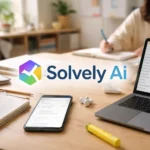AI is revolutionizing healthcare across every specialty, and addiction treatment is no exception. From predictive analytics that identify at-risk individuals to AI-powered chatbots providing 24/7 support, technology is creating new pathways to recovery that seemed like science fiction just a few years ago.
Early Detection and Risk Assessment
One of AI’s most promising applications in addiction is its ability to detect warning signs before substance use escalates into full-blown addiction. Machine learning algorithms can analyze patterns in electronic health records, identifying combinations of risk factors that human clinicians might miss. These systems consider everything from prescription history and mental health diagnoses to social determinants like employment status and trauma history.
Some healthcare systems are now using AI to flag patients who may be at high risk for opioid misuse based on their prescription patterns. When the algorithm detects concerning trends, it alerts providers who can intervene with alternative pain management strategies or closer monitoring. This proactive approach has the potential to prevent addiction before it starts.
Personalized Treatment Plans
No two people experience addiction the same way, and AI is helping treatment providers create truly personalized recovery plans. By analyzing data from thousands of previous patients, AI systems can predict which treatment approaches are most likely to succeed for individuals based on their unique characteristics, substance use history, and co-occurring conditions.
Progressive treatment facilities like Seasons in Malibu are exploring how AI-driven insights can enhance their evidence-based programs, helping clinicians make more informed decisions about treatment intensity, therapy modalities, and aftercare planning. The goal isn’t to replace human judgment but to augment it with data-driven recommendations that improve outcomes.
24/7 Support Through AI Chatbots
Recovery doesn’t happen on a 9-to-5 schedule, and cravings don’t wait for business hours. AI-powered chatbots and virtual recovery coaches are filling a critical gap by providing immediate support whenever someone needs it. These systems use natural language processing to engage in conversations, offer coping strategies, and even detect crisis situations that require human intervention.
Apps like Woebot and Sober Grid incorporate AI to provide cognitive behavioral therapy techniques, track mood patterns, and connect users with peer support. While these tools can’t replace therapists or sponsor relationships, they offer an additional layer of support that’s accessible anytime, anywhere.
Predicting and Preventing Relapse
Perhaps AI’s most exciting contribution is in relapse prevention. Wearable devices combined with AI algorithms can monitor physiological markers like heart rate variability, sleep patterns, and stress levels. When the system detects patterns associated with increased relapse risk, it can alert the individual, their support system, or their treatment team.
Some researchers are developing smartphone apps that use AI to analyze behavioral data—like changes in communication patterns, movement, or social media activity—to predict relapse up to a week before it occurs. This early warning system gives people and their support networks time to intervene.
The Human Element Remains Essential
While AI offers powerful new tools, it’s important to remember that technology enhances rather than replaces human connection in recovery. The empathy of a counselor, the understanding of peers who’ve walked the same path, and the personalized care from dedicated treatment teams remain irreplaceable. AI’s role is to make these human connections more effective, informed, and accessible to everyone who needs help.








